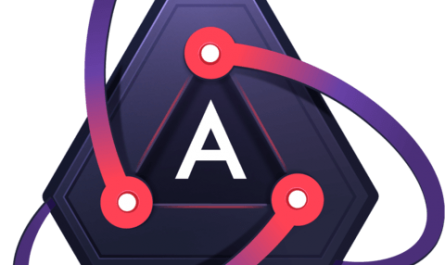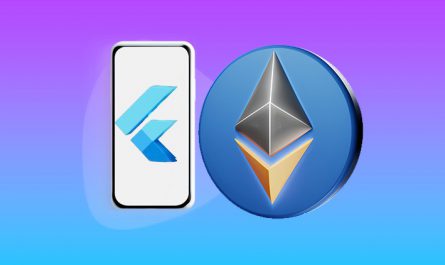
Description
Node.js is an open source, cross-platform runtime environment for developing server-side and networking applications. Node.js applications are written in JavaScript, and can be run within the Node.js runtime on OS X, Microsoft Windows, and Linux.
Nest.js is a progressive Node.js framework for building efficient, reliable and scalable server-side applications. NestJS is a server-side (backend) application framework beautifully crafted to support developers productivity and make their lives happier. Well, it’s not only a framework, it’s an enabler of entering the world of advanced engineering concepts such as Domain Driven Design, Event Sourcing, Microservices architecture.
I spent a good few years in my career developing large scale apps and it didn’t let me down any single time. It’s well written, having quality as an objective, modular web framework with a good documentation, delivering nice developer experience. Exactly the same way I’d describe Nest.
NestJs is built on the top of Typescript and Express.js. It also combines some elements of Object Oriented Programming and functional programming.
Here comes NestJS, a framework which is fully written in TypeScript (it supports JS too, but types are good), it’s easily testable and brings in all the necessary stuff you always think about but you don’t know what to choose.
LoopBack is a highly-extensible, open-source Node.js framework that enables you to create dynamic end-to-end REST APIs with little or no coding. LoopBack 4 is the next step in the evolution of LoopBack. You can build Amazing APIs with Modern NodeJs, Typescript, Mysql and MongoDB.
Why Loopback 4:
- A brand new LoopBack core to deliver great extensibility and flexibility written in TypeScript/ES2017.
- You can Create powerful APIs easily with a new creation experience for defining REST API’s and handling API requests/responses.
- A new, improved programming model with Dependency Injection and new concepts such as Components, Mixins, Repositories, etc. make this the most extensible version yet.
- Using OpenAPI-to-GraphQL, create a GraphQL interface for any REST API
Sails.js is a JavaScript back-end framework that makes it easy to build custom, enterprise-grade Node.js apps. It is designed to emulate the familiar MVC pattern of frameworks like Ruby on Rails, but with support for the requirements of modern apps: data-driven APIs with a scalable, service-oriented architecture. It’s especially good for building chat, real-time dashboards, or multiplayer games; but you can use it for any web application project – top to bottom.
Whether you’re a front-end developer seeking to expand your back-end knowledge, or a server-side developer unfamiliar with using Node and JavaScript on the back-end, the common denominator we all share is a desire to create web applications. Sails is designed to be compatible with whatever strategy you have for building your front-end, whether it be Angular, Backbone, iOS/ObjC, Android/Java, or even a “headless” app that just offers up a raw API to be used by another web service or your developer community. Sails is great for building everyday back-end apps that handle HTTP requests and WebSockets.
What is Koa.js?
Koa is a new web framework designed by the team behind Express, which aims to be a smaller, more expressive, and more robust foundation for web applications and APIs. Through leveraging generators Koa allows you to ditch callbacks and greatly increase error-handling. Koa does not bundle any middleware within core, and provides an elegant suite of methods that make writing servers fast and enjoyable.
Does Koa replace Express?
Koa is more like Connect, but a lot of the Express goodies were moved to the middleware level in Koa to help form a stronger foundation. Koa makes middleware more enjoyable and less error-prone to write, for the entire stack, not just the end application code.
Typically many middleware would re-implement similar features, or even worse incorrectly implement them, when features like signed cookie secrets among others are typically application-specific, not middleware specific.
The Serverless Framework is a free and open-source web framework written using Node.js. Serverless is the first framework that was originally developed for building applications exclusively on AWS Lambda, a serverless computing platform provided by Amazon as a part of the Amazon Web Services. Currently, applications developed with Serverless can be deployed to other function as a service providers, including Microsoft Azure with Azure Functions, IBM Bluemix with IBM Cloud Functions based on Apache OpenWhisk, Google Cloud using Google Cloud Functions, Oracle Cloud using Oracle Fn[1], Kubeless based on Kubernetes, Spotinst and Webtask by Auth0.[2]
Serverless is a cloud computing execution model where the cloud provider dynamically manages the allocation and provisioning of servers. A serverless application runs in stateless compute containers that are event-triggered, ephemeral (may last for one invocation), and fully managed by the cloud provider. Pricing is based on the number of executions rather than pre-purchased compute capacity, isn’t it the ideal framework for that project you have been planning since a long time? Well, go ahead do it.
AdonisJs is a Node.js web framework with a breath of fresh air and drizzle of elegant syntax on top of it. We prefer developer joy and stability over anything else.
Adonis is a full stack, open source MVC framework for Node.js. The framework is inspired by the PHP framework Laravel.
GraphQL is a new API standard that provides a more efficient, robust and flexible alternative to REST. It was developed and open-sourced by Facebook and is now maintained by a large community of companies and individuals from all over the world.
APIs have become ubiquitous components of software infrastructures. In short, an API defines how aclient can load data from a server.
At its core, GraphQL enables declarative data fetching where a client can specify exactly what data it needs from an API. Instead of multiple endpoints that return fixed data structures, a GraphQL server only exposes a single endpoint and responds with precisely the data a client asked for.
How GraphQL is better than REST
1. Increased mobile usage creates need for efficient data loading Increased mobile usage, low-powered devices and sloppy networks were the initial reasons why Facebook developed GraphQL. GraphQL minimizes the amount of data that needs to be transferred over the network and thus majorly improves applications operating under these conditions.
2. Variety of different frontend frameworks and platforms The heterogeneous landscape of frontend frameworks and platforms that run client applications makes it difficult to build and maintain one API that would fit the requirements of all. With GraphQL, each client can access precisely the data it needs.
3. Fast development & expectation for rapid feature development Continuous deployment has become a standard for many companies, rapid iterations and frequent product updates are indispensable. With REST APIs, the way data is exposed by the server often needs to be modified to account for specific requirements and design changes on the client-side. This hinders fast development practices and product iterations.
Who this course is for:
- Beginner Javascript Developers
- Beginner NodeJs Developers
Requirements
- Basics of Javascript required
Last Updated 12/2020
Download Links
Direct Download
Node.js Frameworks Blueprint.zip (5.0 GB) | Mirror
Torrent Download
Node.js Frameworks Blueprint.torrent (164 KB) | Mirror
Source : https://www.udemy.com/course/nodejs-frameworks-blueprint/


